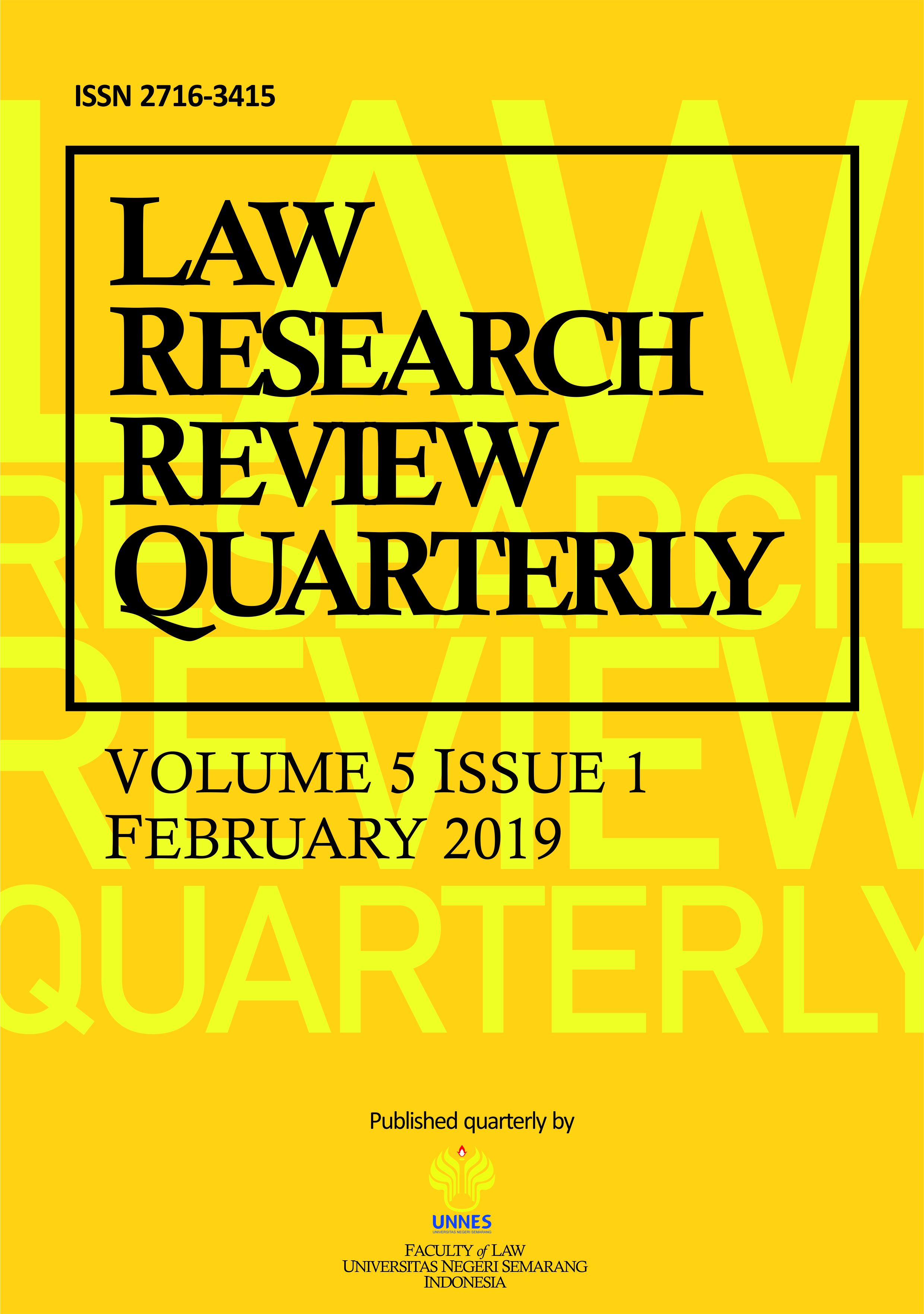Relationship between Regional Head Election Connectivity with Corruption Cultural Behavior in Indonesia
Main Article Content
Abstract
Post New Order era there was a demand for reform from the Indonesian people, which then led to changes in the concept of regional head election system in accordance with the basic mandate of organizing the Election of Regional Heads indirectly is based on the 1945 Constitution, Article 18 paragraph (4) after the amendment which reads "Governors, Regents, and Mayors respectively as Heads of Provincial, Regency and City Regional Governments are democratically elected "Then the concept of Pilkada after the enactment of Law No. 32 of 2004 in conjunction with Law No. 10 of 2016 ended the dominant influence of the Central Government. The arrival of the decentralization era and the system of direct regional elections made corrupt acts of collusion and nepotism a culture continue to spread to the area that is certain can threaten democracy and the existence of the NKRI. So the authors see a relationship between the concept of the concept of the regional head election system and the culture of corruption in Indonesia, so the solution to overcome this problem is strengthening corruption eradication institutions, strengthening at the regional level effectively, harmonizing legislation, strengthening the principle of general government principles good and enforcement of the rule of law with the principle of equality before the law by realizing that there is a very urgent need to overcome the culture of corruption.
Article Details
All writings published in this journal are personal views of the authors and do not represent the views of this journal and the author's affiliated institutions. Author(s) are retain the copyrights of the Article. However, before publishing, it is required to obtain written confirmation from Author(s) in order to ensure the originality (Author Statement of Originality). The statement is to be signed by at least one of the authors who have obtained the assent of the co-author(s) where applicable.This work licensed under a Creative Commons Attribution-ShareAlike 4.0 International (CC BY-SA 4.0)
References
Azhar, Peranan Biro Anti Korupsi dalam mencegah terjadinyakorupsi di Brunei Darussalam, Jurnal Litigasi Vol. 10, Bandug: Fakultas Hukum Unpas, Tahun 2009
Hidayat, Syarif., Desentralisasi Dan Otonomi Daerah Dalam Perspektif State-Society Relation., (Jurnal Poelitik Vol. 1 No. 1, 2008)
Kulsum, Umi. Kewenangan komisi pemberantasan Korupsi (KPK) dalam melakukan Tindak pidana korupsi, Jurnal jure humano, Vol. 1,No. 3, Banten: Fakultas Hukum Untirta, Tahun 2009, hlm.81.
Nur, Muhammad Syariff. Hakikat pertanggungjawaban pemerintah daerah dalam penyelenggaraan pemerintahan, Jurnal masalah-masalah Hukum, jilid 41, No. 1 Januari 2012, Semarang: Fakultas Hukum Undip, hlm 52.
Retnowati, Endang Pusaran Pemilihan Kepala Daerah Secara Langsung Atau Tidak Langsung. Volume XX No. 1 Tahun 2015 Edisi Januari Fakultas Hukum Universitas Wijaya Kusuma Surabaya
Undang-Undang Nomor 32 Tahun 2004 Tentang Pemerintahan Daerah
Ridwan HR. Hukum Administrasi Negara. Jakarta: Rajawali pers. 2014.
Wawan S, dkk. Tinjauan Yuridis Perbandingan Sistem Pilkada Langsung Dan Tidak Langsung Berdasarkan Demokrasi Pancasila. Jurnal Hukum Fakultas Ekonomi Universitas Semarang
Artikel ini telah tayang di Tribunnews.com dengan judul Data ICW: 104 Kepala Daerah Terjerat Korupsi, Sebanyak 29 Orang di Tahun 2018, http://www.tribunnews.com/section/2018/12/19/data-icw-104-kepala-daerah-terjerat-korupsi-sebanyak-29-orang-di-tahun-2018?page=2. Diakses pada Hari Selasa, 26 Oktober 2019 pukul 10.12 WIB
https://www.jabarpos.id/korupsi-di-indonesia-sebuah-catatan-statistik/. Diakses pada Hari Selasa, 26 Oktober 2019 pukul 10.12 WIB
http://www.bawaslu-dki.go.id/14/12/2015/menyoal-partisipasi-pemilihpilkada/, Diakses dari tanggal 1 Februari 2016, pukul 21.20 WIB
